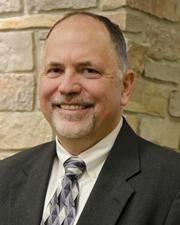James R. Thompson

- Professor Emeritus
Contact Info
Office Phone:
Office Phone Second:
Haworth Hall, room #3124
Joseph R. Pearson Hall, room #514
Personal Links
Biography —
James R. Thompson, Ph.D. has over 30 years of experience in the field of developmental disabilities as a direct support professional, special educator, rehabilitation counselor, teacher educator, and researcher. He has authored or co-authored over 70 books, book chapters, monographs, and articles in professional journals, and has directed multiple federal and state funded research and model demonstration projects. His primary research focus for the past 15 years has been on support needs assessment and planning with children and adults with intellectual disability and related developmental disabilities. Jim serves as Editor of Intellectual and Developmental Disabilities.
Dr. Thompson serves as a Professor in the Department of Special Education, Senior Scientist at the Beach Center on Disability, and Associate Director of the Kansas University Center on Developmental Disabilities. He serves on the Board of the Council for Exceptional Children's Autism and Developmental Disabilities Division as Publications Chairperson and is a Past-President of the American Association on Intellectual and Developmental Disabilities. In 2020 Dr.Thompson was recognized as National Honoree by the National Historic Recognition Project for contributions in the field of intellectual and developmental disabilities in the U.S. between 2000 and 2020.
Dr. Thompson serves as a Professor in the Department of Special Education, Senior Scientist at the Beach Center on Disability, and Associate Director of the Kansas University Center on Developmental Disabilities. He serves on the Board of the Council for Exceptional Children's Autism and Developmental Disabilities Division as Publications Chairperson and is a Past-President of the American Association on Intellectual and Developmental Disabilities. In 2020 Dr.Thompson was recognized as National Honoree by the National Historic Recognition Project for contributions in the field of intellectual and developmental disabilities in the U.S. between 2000 and 2020.
Research —
James R. Thompson is recognized as an international expert in support needs assessment and planning with children and adults with intellectual disability and related developmental disabilities. He is the lead author of American Association on Intellectual and Developmental Disabilities' Supports Intensity Scales (both the adult version and the children's version), the first assessment tools to provide standardized measures of the support needs of people with disabilities. The Supports Intensity Scales have been translated and published in 13 languages, and are being used throughout the United States and world.
Research interests:
- Support needs assessment and planning
- Intellectual Disability
Teaching —
Teaching and learning should be a source of joy for both my students and myself at the University of Kansas. This does not mean that I want my courses to be fun, although it is OK for a course to be fun for everyone. Rather, my goal is for students to get their "learning joy" from the energy and personal satisfaction that comes from meaningful intellectual engagement and personal growth. The joy of learning and joy of teaching have a reciprocal relationship, and I get my "teaching joy" when I see students acquiring new knowledge, competencies, and perspectives.
Teaching interests:
- Special Education
- Low-incidence disabilities
- Transition
Selected Publications —
Thompson, J. R., Hughes, C., Walker, V., & DeSpain, S. N. (2017). Measuring support needs and supports planning [Book Chapters]. In M. L. Wehmeyer & K. A. Shogren (Eds.), Research-based Practices for Educating Students with Intellectual Disability.
Verdugo, M. A., Arias, B., Guillen, V. M., Seo, H., Shogren, K. A., Shaw, L. A., & Thompson, J. R. (2016). Examining age-related differences in support needs on the Supports Intensity Scale – Children’s Version – Spanish Translation. [Journal Articles]. International Journal of Clinical and Health Psychology, 16(3), 306–314. https://doi.org/10.1016/j.ijchp.2016.06.002
Simões, C., Santos, S., Biscaia, R., & Thompson, J. R. (2016). Understanding the relationship between Quality of Life, Adaptive Behavior, and Support Needs [Journal Articles]. Journal of Developmental and Physical Disabilities, 28, 849–870. https://doi.org/10.1007/s10882-016-9514-0
Seo, H., Shogren, K. A., Little, T. D., Thompson, J. R., & Wehmeyer, M. L. (2016). Construct Validation of the Supports Intensity Scale - Children and Adult Versions: An Application of a Pseudo Multitrait-Multimethod Approach [Journal Articles]. American Journal of Intellectual and Developmental Disabilities , 121(6), 550–563. https://doi.org/10.1352/1944-7558-121.6.550
Selected Presentations —
Thompson, J. R. (11/3/2017). Understanding students with disabilities by their strengths and support needs. Illinois Council for Exceptional Children 2017 Fall Convention. Naperville, IL. http://illinoiscec.org/wp-content/uploads/2016/09/2017-Program-ICEC-Fall-Convention.pdf
Thompson, J. R., Wehmeyer, M. L., Shogren, K. A., & Fiddler, D. (11/9/2017). Writing for publication. AAIDD Webinar Series. http://aaidd.org/education/education-archive/2017/11/09/default-calendar/writing-for-publication1#.Wle-jhM-dcB
Thompson, J. R. (9/21/2017). Finding your people, resolving your purpose, & igniting your passion. 2017 Louisiana AAIDD Annual Meeting & Conference. Alexandria, LA. https://aaiddla.wildapricot.org/event-2571012
Smith, P. J., & Thompson, J. R. (4/21/2017). Attitudes towards diverse learners in a representative school district. Council for Exceptional Children Convention and Expo. Boston, MA
Thompson, J. R., Walker, V., & DeSpain, S. (4/22/2017). Evaluating support needs and implementing mand training with an elementary-age student with severe disabilities. Council for Exceptional Children Convention and Expo. Boston, MA. https://www.cec.sped.org/Professional-Development/Events-Calendar/2017/04/CONV2017
Thompson, J. R., Shogren, K. A., & Wehmeyer, M. L. (6/8/2016). Introducing the SIS-A Annual Review Protocol. 140th Annual Meeting of the American Association on Intellectual and Developmental Disabilities. Atlanta, GA
Thompson, J. R. (6/30/2016). The Supports Paradigm: Why understanding people with disabilities by their support needs changes everything. MAT Á STUDNINGSÞÖF FATLADRA Supports Intensity Scale (SIS). Reykjavik, Iceland. http://www.greining.is/static/files/2016/SIS_glaerur/thompson-presentation-1-paradigm.pdf
Service —
Dr. Thompson serves as editor of the professional journal, Intellectual and Developmental Disabilities. Additionally, he is a visiting professor at HoGent College in Ghent, Belgium where he consults with faculty members on disability issues at the EQUAL Center.